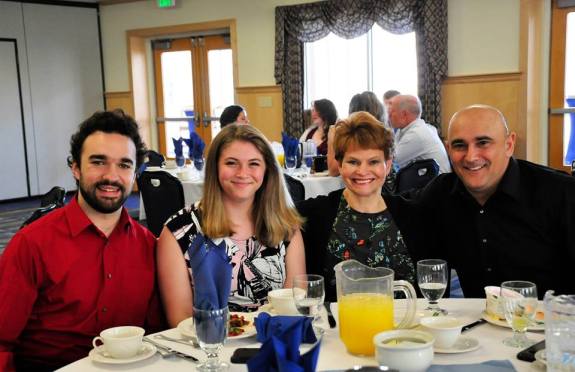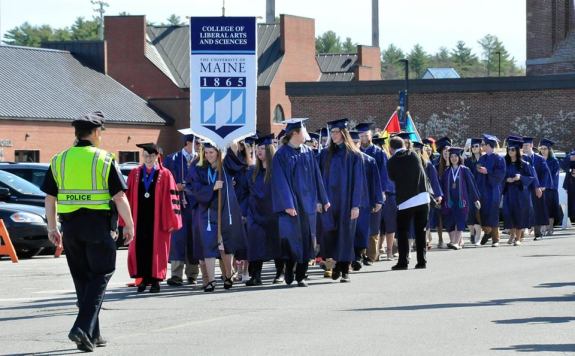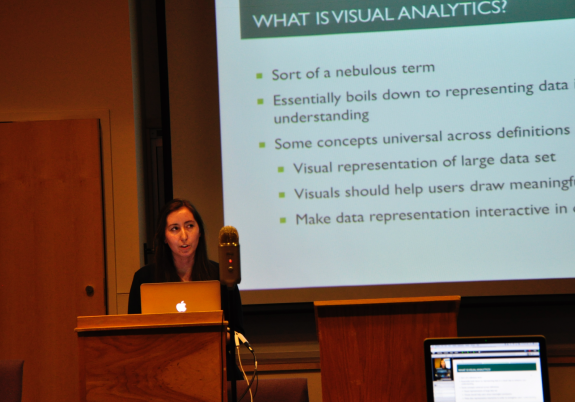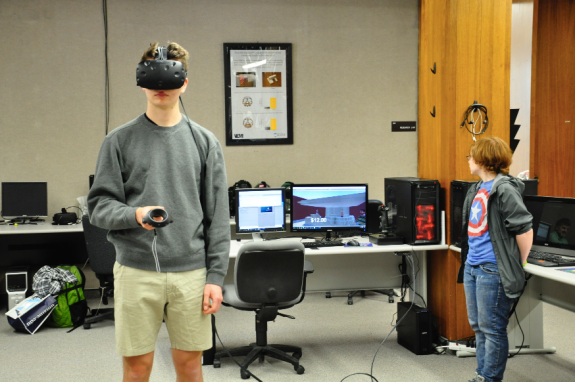Katelyn (Katie) Manzo has been a member of the Geosensor Networks lab since August 2015, when she participated in a summer course in programming Arduinos. After doing exceptionally well in the required first year CS courses, she still was on the verge of dropping the major due to the mostly abstract content and question if it would be a right fight. Arduinos, on the other hand, were practical, hands on, and fun. She understood all concepts in lightening speed, and made the perfect ‘hershey kisses’ right off the bat when sautering the radio boards. A natural!

Katie practice soldering
She started to work as a MLA (Maine Learning Assistant) for COS250 in Fall 2016, and started with Dr. Nittel in the summer of 2016 as an undergraduate research assistant. She helped develop the course material for COS120: Computing that Matters, especially the Arduino and Database section, and made several instructional videos for the course.
In Fall 2016, she was a founding member of the ACM-W student group at UMaine, and became the group’s Vice President. The group has been very active organizing events for women in computing at UMaine and reached out to high school and middle school students. In 2017, Katie became the ACM-W president, and organized weekly meeting, programming meets and parties on top of her regular course load.
Since Spring 2016, Katie has participated in a project with Dr. Nittel, her advisor and mentor, and Dr. Sharon Klein, an Economics professor for Sustainable Energy. She familiarized herself with a recently developed website that collects data about US Community Renewable Energy Projects (www.communityenergyus.net). Supported via a Margaret Chase Smith Public Affairs Scholarship Katie added a social media component to the original website. The social media component includes user profiles and user discussion forums with regard to user-specific questions around community renewable energy. She has presented her research and work at the Center for Undergraduate Research’s Student Research Symposium in April 2018.
Katie is one of two women left in her graduating class; this is why she feels strongly about supporting women in computing, and the exposure of computing to middle school and high school girls are very important to her. This is also something that she hopes to carry through to the workplace when she graduates.
Katie topped it all of with being the College of Liberal Arts and Sciences Outstanding Graduating Student in 2018. Congratulations, Katie! Very well done, we are very proud of you!
Here is an interview with Katie.

Katie Manzo CLAS Outstanding Graduating Senior, 2018

Katie with John and Family

Katie carrying the CLAS flag at Commencement

Katie and other CS students at Commencement





















